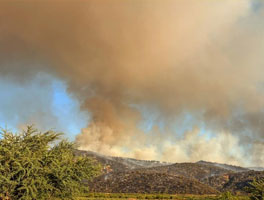 |
Dear readers,
Welcome to the Climate Weekly newsletter by the Centre for Science and Environment’s Climate Change programme and Down to Earth.
The European Union has announced a new target to slash their emissions by 90% by the year 2040, compared to 1990 levels. While the target is ambitious, there are gaps that cannot be overlooked. The EU expects to achieve the targeted reduction with a heavy dependence on still contentious and costly technologies such as carbon capture, utilisation and storage. Remove these dependencies, and the actual reduction would barely be 84%, according to Climate Action Tracker. The EU also aims for negative emissions using these technologies, however its countries are currently signing natural gas deals expected to supply LNG well into 2050. Recent farmer protests across the EU have also seemed to have an impact, given that the proposal has removed strong emission reduction targets on the agricultural sector. While there is a need to ensure a balanced transition in agriculture keeping in mind the wellbeing of farmers, the removal of a target altogether sets a worrying precedent.
Post Russia’s war on Ukraine and the ensuing energy crisis, the EU turned to other regions to diversify its gas imports, including USA, Qatar and Mozambique. Its proposed transition away from fossil fuel dependency and record uptake in renewable energy resources to meet the 2040 target, therefore has global implications. The EU also remains an important group to hold accountable in international climate policy given its status as a historical polluter. Following elections later this year, the newly elected EU Commission is expected to formalise this target in the EU Climate Law. The impacts of this target, therefore, need to be well understood.
You can register for a training course on ‘Demystifying Environmental and Sustainability Data for Effective Communication in the 21st Century’. The CSE Media Resource Centre also invites journalists writing on environment, development and related issues, to register for the upcoming annual Anil Agarwal Dialogue.
|
|
 |
| |
 |
|
| |
 |
 |
| |
By - Tamanna Sengupta
Climate Change, CSE
|
| |
|
 |
|
|
| |
 |
|
| |
| EXTREME WEATHER TRACKER |
| |
Temperatures crossed 1.5°C for the whole of 2023; last month hottest January on record, say EU scientists, 08 February 2024
|
 |
 |
|
|
| |
 |
|
| |
 |
 |
Chile records its deadliest wildfire in 123 years, may be linked to climate change, 09 February 2024
|
|
|
| |
|
|
| |
|
|
| |
 |
|
| |
|
|
| |
|
|
| |
|
|
| |
 |
|
| |
|
|
| |
 |
|
| |
CLIMATE NEWS | SCIENCE| IMPACTS| POLITICS |
|
| |
 |
|
| |
|
|
| |
 |
|
| |
|
|
| |
 |
|
| |
|
|
| |
 |
|
| |
|
|
| |
 |
|
| |
|
|
| |
 |
|
| |
|
|
| |
 |
|
| |
|
|
| |
|
|
| |
| Anil Agarwal Dialogue |
|
Webinar |
| |
|
|
|
|
|
|
|
|
| |
|
|